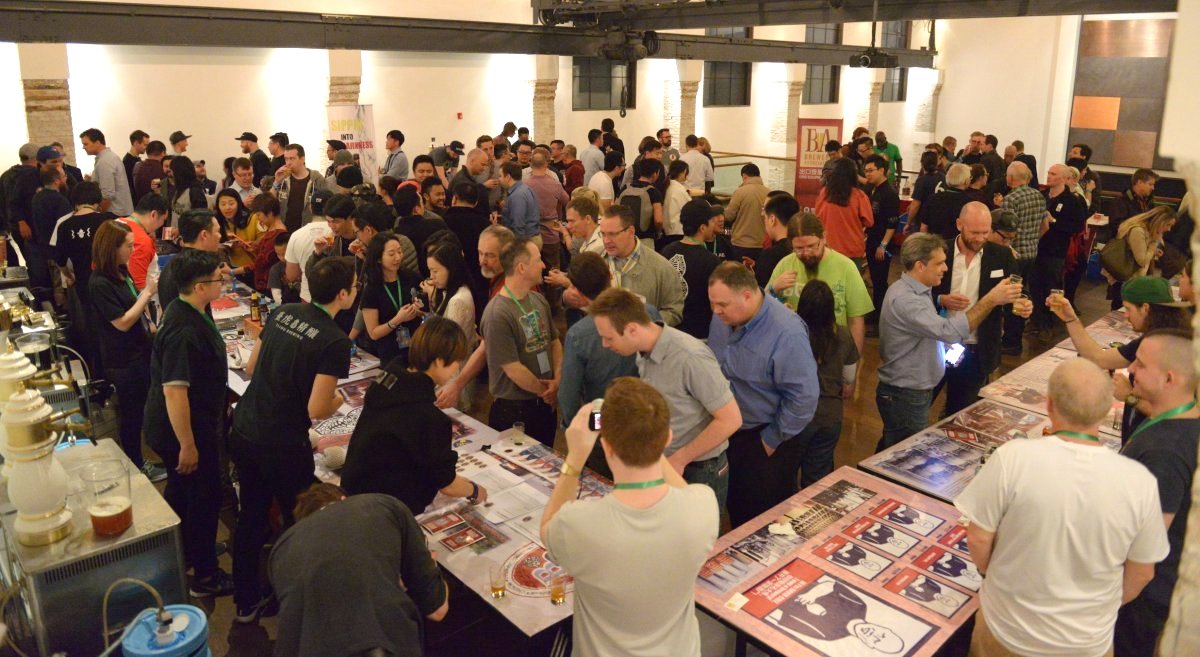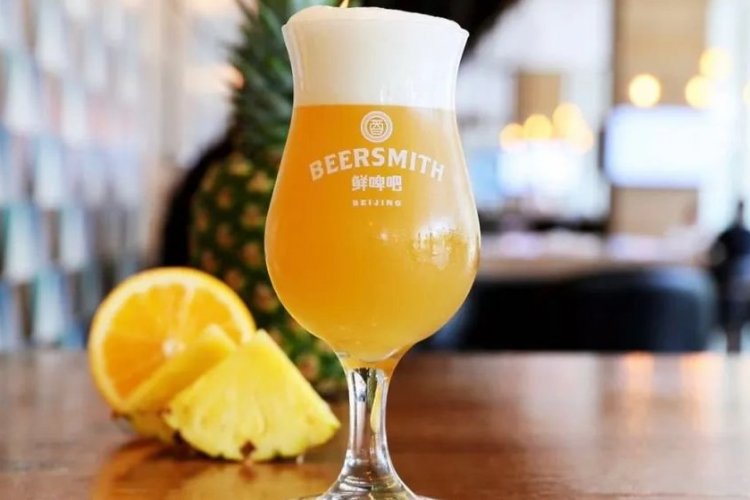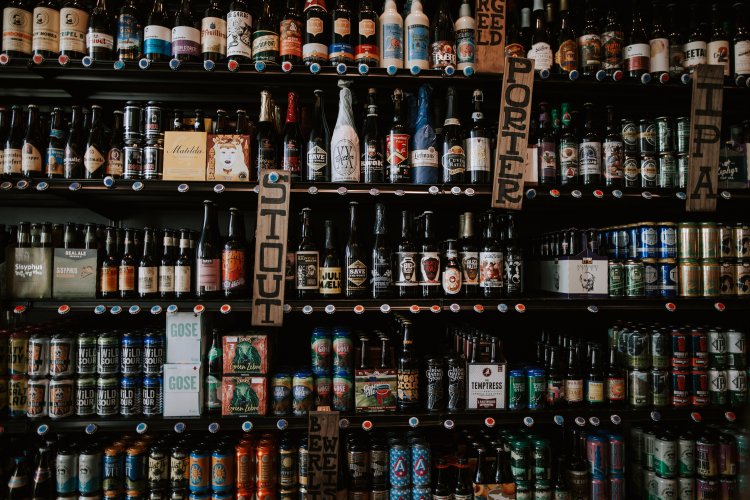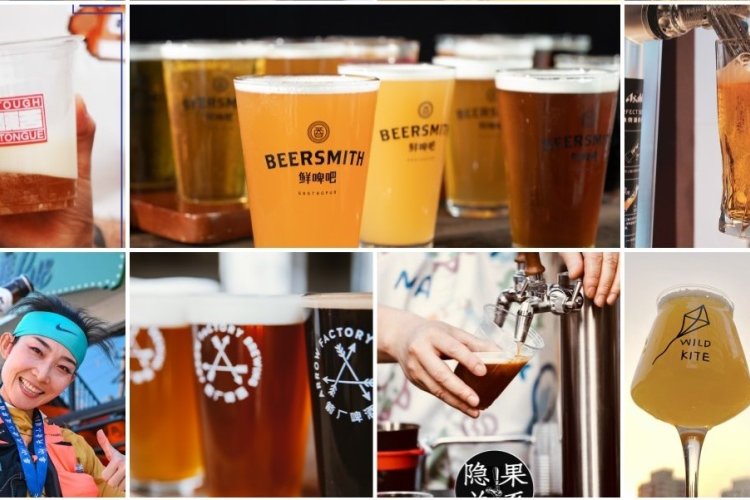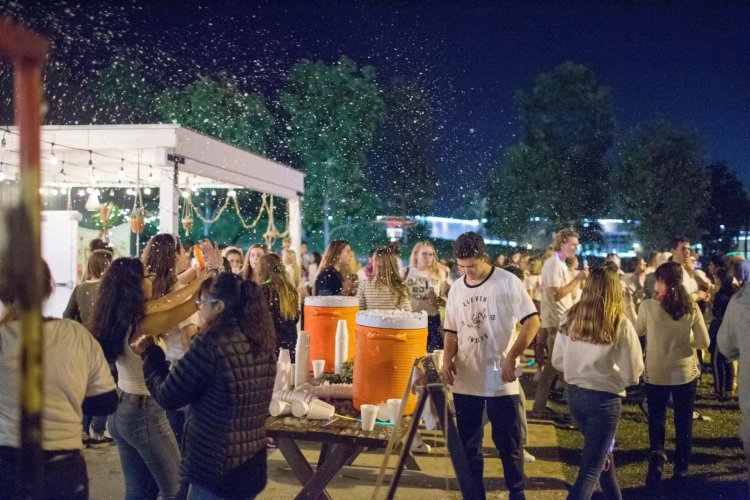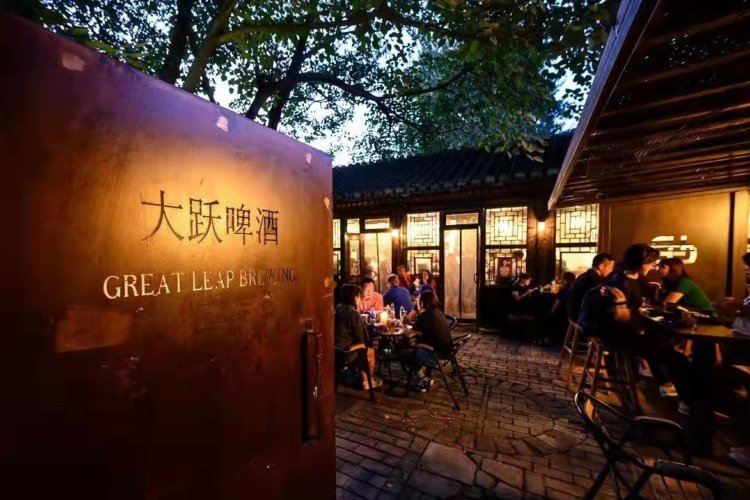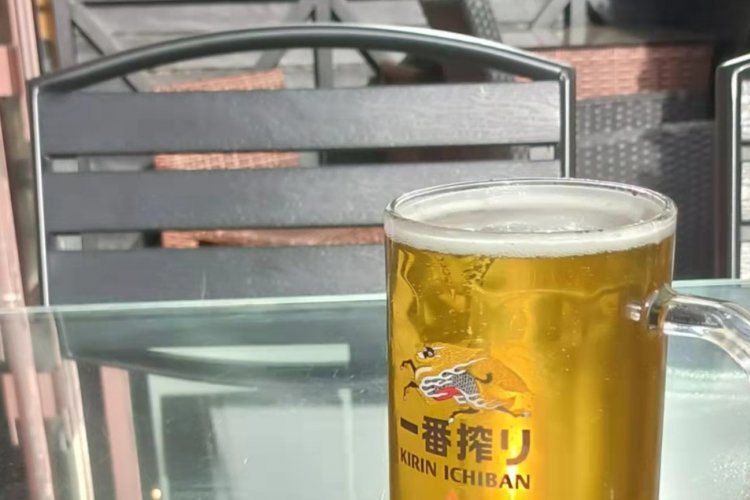A Drink With Great Leap’s Carl Setzer Ahead of Beijing Invitational Craft Beer Festival, Mar 23-25
If you're an old Beijing hand, a craft beer lover, or just a loyal reader of the Beijinger, you're more than likely to be familiar with Carl Setzer. Creator and co-owner of Beijing's very first brewpub, Great Leap Brewing, Setzer opened the first of now three Great Leaps on Doujiao Hutong in 2010 with his wife Liu Fang, an enterprise that quickly became one of the city's favorite venues to while away the hours drinking pints, eating burgers (or pizza), and chewing the fat.
Via their three branches, GLB now provides the city with 20 varieties of microbrew but they are not the focus of the upcoming Beijing Invitational Craft Beer Festival (BICBF) at TRB Copper from Mar 23-25, instead, the event serves to highlight 70 of the best beers from around the world as handpicked by GLB. We recently had a drink with Carl Setzer to pick his brain about what to expect from what is now the fourth outing of one of Beijing's biggest beer festivals.

Could you explain what Beijing Invitational Craft Beer Festival is and how many beers attendees can expect to have access to in one session?
The festival is spread across five all-you-can-drink three or four-hour sessions from Friday to Sunday (Mar 23-25), and tickets are RMB 200 per session to get you entrance to the event, free-flow drinks, canapés provided by TRB, and a limited-edition 2018 BICBF glass.
There will be over 70 unique beers (over 200 for the whole weekend) at each session, which are way more than anyone could physically drink over a three-day session, let alone in one day. We are proud of the beer selection, especially Bell’s, which seldom do international beer festivals and doesn’t export to anywhere but Puerto Rico. John Mallett (director of operations for Bell’s), who also wrote one of the definitive books on malt, is going to be standing behind the table and pouring their beers. In that sense, we're trying to make the fest interactive and friendly.
Other highlights include Societe and Pipeworks, who are among the top 25 small breweries in America. Societe doesn’t do distribution outside of San Diego County, so having them onboard is meaningful. The same goes for the other brewers, who are either influential mentors or really close friends of mine. It’s a question of inspiring people to see beyond AB InBev, Brewdog, or the stuff that has been here forever. People can talk to the founders, brewmasters, owners, and other brewery representatives who will all be there to pour and discuss their beer with you as you drink.

How is BICBF different to other beer festivals in China?
It’s a door ticketed session event, making it similar to some festivals in Japan, Europe, and America. However, each session will be limited to 240 people, setting it apart from many festivals in Japan or Europe. This year we decided to reduce the number of sessions, extend the times, and lower the price, so many more people can attend. The food will also be good – TRB canapés are included in the ticket price.
This isn’t about making money or promoting ourselves; we’ve now done the event for years, and Great Leap never attended. Instead, we've tried to give people an idea via a small sample set of how big the market is. From a personal aspect, I prefer the owners/founders/brewmasters being there, so people can ask questions and brand representatives can get an idea of what the Chinese market is like without the distributors in the middle. A lot of other festivals basically rely on distributors, not the brand, and they (the sales teams) don’t know too much about the brand. What we want to do is the opposite, which makes us extremely unpopular with the distributors, key-opinion leaders, and everyone else who is in the middle, but puts a meaningful focus on the customers. Last year, the guy Hugo from Hugo’s in Chengdu came to have his cellphone case and four books signed, and took about 90 pictures ... this is the best opportunity for fresh products and the people that care the most with nothing to get in the way in the middle.

What first inspired you to organize this beer fest?
It’s really tiring to hear people tell you that some brand is famous abroad when it's not, so I just want to bring real good beers to China that aren't already here. I also wanted to help local breweries understand that it's their responsibility to make a better beer.
It seems that breweries would fight for a spot on the beer fest, how do you choose the breweries?
We definitely don’t make friends doing this. To be honest, we get a lot of emails from the people that don’t get it but it’s in the name of the festival – invitational. I have a good friend in Europe, who just opened a brewery, and his beer is garbage, but I've known this guy for five years and he started to send me messages saying he was willing to attend the fest. I sent him a link to Air China, implying that he, rather than his beer, could attend the fest.
We are inviting more Chinese craft breweries that we really respect, but the policy is still no Beijing brands because anybody that attends can explore outside of the event and drink what they want in the city. There will be Devolution, 18 Beer, Chengdu Harvest, and Strong Ale Works representing mainland China because of the quality of their beer. For example, the guys of Devolution are great people that brew great beer; they took a chance by brewing in Dalian, which is a borderline second/third-tier city. 18 Beer, Karl Jiang, and Guangtou are awesome, but they get so nervous when you get them to Beijing because they are afraid they can’t do the niubi thing in a big city, so that’s more for my own personal pleasure [laughs]…
For the domestic beers, it'll be great to see four really strong Chinese craft breweries standing alongside a lot of famous foreign brands. For the foreign brands, a beer with import sticker doesn't necessarily mean it's better than the local brews, so we would like to show the customers what good beer is supposed to be.
What were the challenges you faced in organizing this beer fest?
Some breweries are really not very organized, and are unprofessional – I asked them to put up with eight pieces of paper and their heads exploded. When we did the fest the second year, when they simply had to check what they [the breweries] had to do, they had an emotional breakdown, and gave up, “because of the papers! I don’t have a printer!”
Overall, the biggest challenges are timing and importation. The biggest challenge for me is I have to go and convince the breweries to come, then step back and let my team run the festival.
What can people expect at the festival?
Classic American IPAs that I think represent the best of America, and big stouts from Europe. Any beer that a brewery trusts enough from their portfolio to send halfway around the world by themselves is worth trying, and there are a lot of famous beers on the list – many of the brews are well-known in a certain regions and they will bring what best represents their regional character. I would be confident in saying that the list is solid, and there’s nothing on the serving list that I wouldn’t be excited to try.
Which is the favorite of your beers and what makes them special?
Recently, we've been particularly proud of our pils. Pilsners are not the hardest to brew but when we originally brewed it five years ago, we spent a lot of time trying to experiment with local hops for the right aroma. We had four entries in the World Beer Cup this year and we added our pils as one of the four to represent us.
I can go on and on about the Honey Ma series, and our IPAs, and how every year we brew 50 to 60 unique beers. There was only once or twice in our history that the beer turned out to be the beer that I didn’t want it to be. The beer I’m more and more proud of based on their stories are the Hop God and the Little General, because people want to hear about local materials. We are still the only brewery that is brave enough to use Qingdao Flower hops.
Favorite Chinese food and beer pairing?
That’s a tough one. Chongqing laziji (Chongqing stir-fried chicken with chilies) with Honey Ma ... No, if I can only choose one, it should be ganbian feichang (dry-fried intestine) from Sanyangcai with any of our beers.
What’s the most undervalued brewing ingredient?
Water. Water chemistry is fascinating though few people talk about it. Each revolution we made in technical capability, it always goes back to water because you can have the best quality of hops and yeast, but if your water chemistry profile or bicarbonate levels are too high, the hops will be rendered.
What’s the most underestimated beer type?
I think the overestimated style is New England IPA. Some of the breweries don’t know how to brew a proper IPA and they end up calling it a New England IPA (because it's hazy). We would say Flanders Red Ales 10 years ago, but they are popular now. And pilsners are the new IPA now. All the old recipes, all the new styles of beer, have been brewed and Instagrammed. I don’t think there’s an underestimated beer style. Now, the trend is from extreme styles with high ABV, high hoppiness, and high bitterness to the easy drinking ones.
What’s your golden rule of drinking?
It’s also a golden rule of life: don’t be an arsehole. It’s universal, but telling the truth does not make you an arsehole.
Who would you most like to go out drinking with?
James Scott Krejcie who built our brewery (and Nøgne Ø's in Norway). He drove us to all the bars that threw him out in Chicago. He is one of my favorite people. Between Ernest Hemingway and James Scott Krejcie, I would choose James.
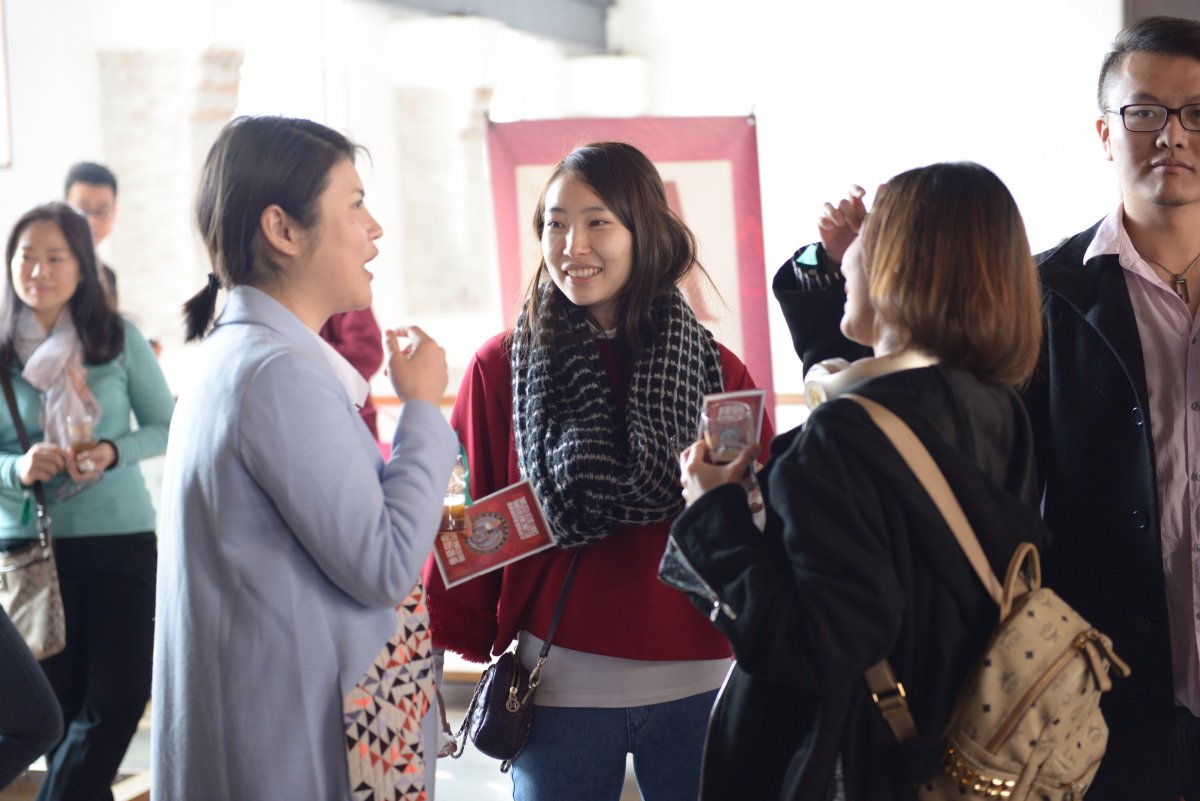
This year's Beijing Invitational Craft Beer Festival runs Mar 23-25 at TRB Copper, and tickets are divided as follows:
- RMB 200 - access to one session (three or four hours) and a 150ml glass to fill up with free-flow the beers on site as well as canapés by TRB and the chance to talk to brewmasters from each brewery;
- RMB 488 - a five-course sit-down brunch with limited-edition beers on Mar 25;
- RMB 550 - a three-session pass to be used throughout the weekend;
- RMB 988 - for the true beer fanatics. Gives you entrance to all sessions and the brunch.
Tickets are available either online at 247Tickets or at all three Great Leap Brewing locations. Contact jimmy@greatleapbrewing.com for more information, and stay tuned for our beer guide closer to the event.
More stories by this author here.
Email: tracywang@thebeijinger.com
Twitter: @flyingfigure
Instagram: @flyingfigure
Photos courtesy of Great Leap Brewing
Related stories :
Comments
New comments are displayed first.Comments
![]() Max Renn
Submitted by Guest on Tue, 03/13/2018 - 18:44 Permalink
Max Renn
Submitted by Guest on Tue, 03/13/2018 - 18:44 Permalink
Re: A Drink With Great Leap’s Carl Setzer Ahead of Beijing...
It’s also a golden rule of life: don’t be an arsehole. It’s universal, but telling the truth does not make you an arsehole.
Carl reminds me of some computer programmers I've worked with. They have zero social skills, so come across as exceptionally rude, but can't understand why people react so badly. They would also say "But I'm just being honest".
For example, Carl says this about his good friend's beer: his beer is garbage.
That's an incredibly arsehole thing to say about your friend and his fledging brewery. A normal person would say something like this: he just launched his brewery so his beers aren't ready (yet!) for this festival, but I hope to see him and his beers here soon.
So Carl, the problem isn't that you're honest, the problem is that you're just unpleasant.
Validate your mobile phone number to post comments.

